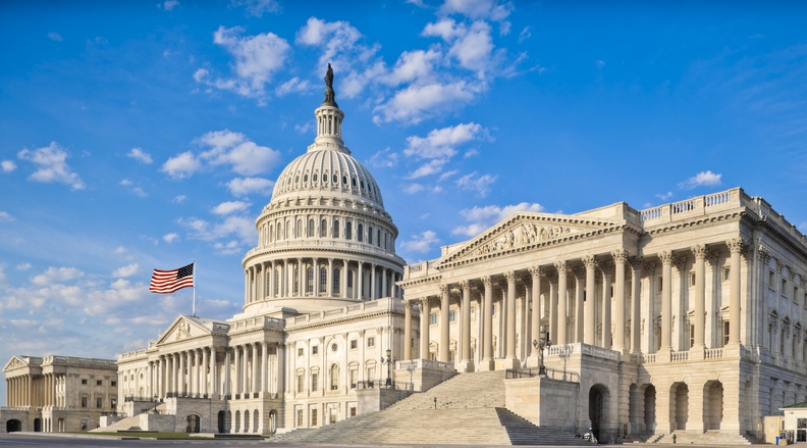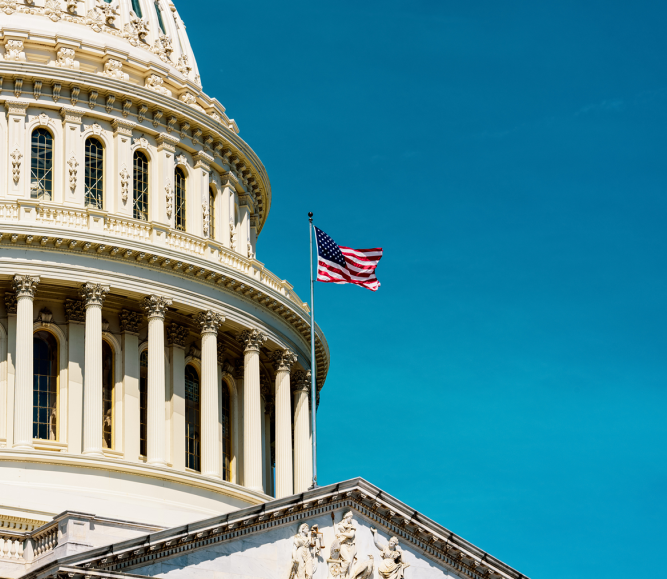U.S. Congress passes continuing resolution to fund government through midterm elections
Author

Paige Mellerio

Blaire Bryant

Brett Mattson

Maxx Silvan
Upcoming Events
Related News

Key Takeaways
On September 30, the U.S. House of Representatives voted 230-201 to avert a government shutdown and pass a continuing resolution (CR) that would fund the federal government at current Fiscal Year (FY) 2022 spending levels through December 16, 2022. The U.S. Senate voted 72-25 to pass the temporary spending measure on September 29 and the bill now heads to the White House to be signed into law before the federal fiscal year ends on September 30 at midnight.
Of particular note to counties, the CR does not include legislation such as the bipartisan State, Local, Tribal and Territorial Fiscal Recovery, Infrastructure and Disaster Relief Flexibility Act (S. 3011/H.R. 5735) that would provide counties with additional flexibilities in investing American Rescue Plan Act (ARPA) State and Local Fiscal Recovery Funds. The bill was approved by unanimous consent in the U.S. Senate in October 2021 and would also provide the U.S. Department of the Treasury with flexibility in its use of administrative funds to support counties in carrying out crucial programs and invest ARPA Recovery Funds. Without this flexibility, we are concerned that Treasury’s diminished capacity to administer these programs will hamper counties’ efforts to spend funds effectively and meet the most pressing needs in our communities. NACo urges Congress to include S. 3011/H.R. 5735 in the next legislative or spending vehicle so counties can continue to respond to and recover from the unprecedented COVID-19 pandemic.
Beyond the exclusion of S. 3011, the CR does not include any additional emergency supplemental funding to address COVID-19 or the monkeypox outbreak.
The CR also includes several provisions beyond a direct extension of funding enacted for FY 2022, including supplemental and emergency spending and expiring program extensions through the duration the CR. The stopgap measure includes:
- $2 billion for the Community Development Block Grant Disaster Relief (CDBG-DR) program
- $62 million to support operation of the 988 National Suicide Prevention Lifeline and provide services to 988 callers through FY 2023
- An extension of the Federal Communication Commission’s authority to manage non-governmental use of spectrum
- $1 billion in funding for the Low Income Home Energy Assistance (LIHEAP) program
- An extension of the Maternal, Infant and Early Childhood Home Visiting Program (MIECHV)
- An extension of the Temporary Assistance for Needy Families (TANF) program
- An extension of the National Flood Insurance Program (NFIP)
- A provision allowing FEMA to access over $18 billion up front to respond to current and future disasters
- An extension of child welfare programs authorized under Title IV-B of the Social Security Act, which support states, territories and tribes with funds to protect children; support, preserve and reunite families; and promote and support adoption
- An extension of authorization for several veterans homelessness programs under the U.S. Department of Veterans Affairs (VA) through September 2024.
NACo urges Congress and the President to commit to working together to reach an agreement on all spending legislation by October 1 of each year. Alternatives, such as continuing resolutions and government shutdowns, create costly delays and uncertainty in providing federal assistance and programs for America’s counties and their residents.
As talks on FY 2023 spending continue, NACo will continue to advocate for county priorities.
Resource
Resource Hub for Counties: State, Local, Tribal and Territorial Fiscal Recovery, Infrastructure And Disaster Relief Flexibility Act

Related News

U.S. House passes final minibus funding package
Congress introduced the final FY 2026 Appropriations package, including key county priorities related to transportation, housing, health, emergency management and public safety

U.S. Congress passes minibus funding package
U.S. House and Senate appropriators passed a “minibus” appropriations package containing Fiscal Year (FY) 2025 Interior-Environment, Commerce-Justice-Science and Energy-Water spending bills.

